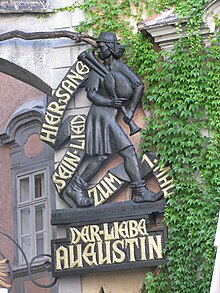This article includes a list of references, related reading, or external links, but its sources remain unclear because it lacks inline citations. Please help improve this article by introducing more precise citations. (March 2010) (Learn how and when to remove this message)
.mw-parser-output .hidden-begin{box-sizing:border-box;width:100%;padding:5px;border:none;font-size:95%}.mw-parser-output .hidden-title{font-weight:bold;line-height:1.6;text-align:left}.mw-parser-output .hidden-content{text-align:left}@media all and (max-width:500px){.mw-parser-output .hidden-begin{width:auto!important;clear:none!important;float:none!important))You can help expand this article with text translated from the corresponding article in German. (December 2009) Click [show] for important translation instructions.
View a machine-translated version of the German article.
Machine translation, like DeepL or Google Translate, is a useful starting point for translations, but translators must revise errors as necessary and confirm that the translation is accurate, rather than simply copy-pasting machine-translated text into the English Wikipedia.
Consider adding a topic to this template: there are already 1,845 articles in the main category, and specifying|topic= will aid in categorization.
Do not translate text that appears unreliable or low-quality. If possible, verify the text with references provided in the foreign-language article.
You must provide copyright attribution in the edit summary accompanying your translation by providing an interlanguage link to the source of your translation. A model attribution edit summary is Content in this edit is translated from the existing German Wikipedia article at [[:de:Marx Augustin]]; see its history for attribution.
You may also add the template ((Translated|de|Marx Augustin)) to the talk page.
For more guidance, see Wikipedia:Translation.

Marx Augustin (also Markus Augustin, "Der Liebe Augustin") (1643 in Vienna – 11 March 1685 (or 10 October 1705), in Vienna) was an Austrian minstrel, bagpiper, and improvisatory poet most famous for the song, "O du lieber Augustin", which is attributed to him.
References
- Greatest Hits, 1820-60 (Variety Music Cavalcade). Accessed June 11, 2009.
| International | |
|---|---|
| National | |
| Artists | |
| People | |